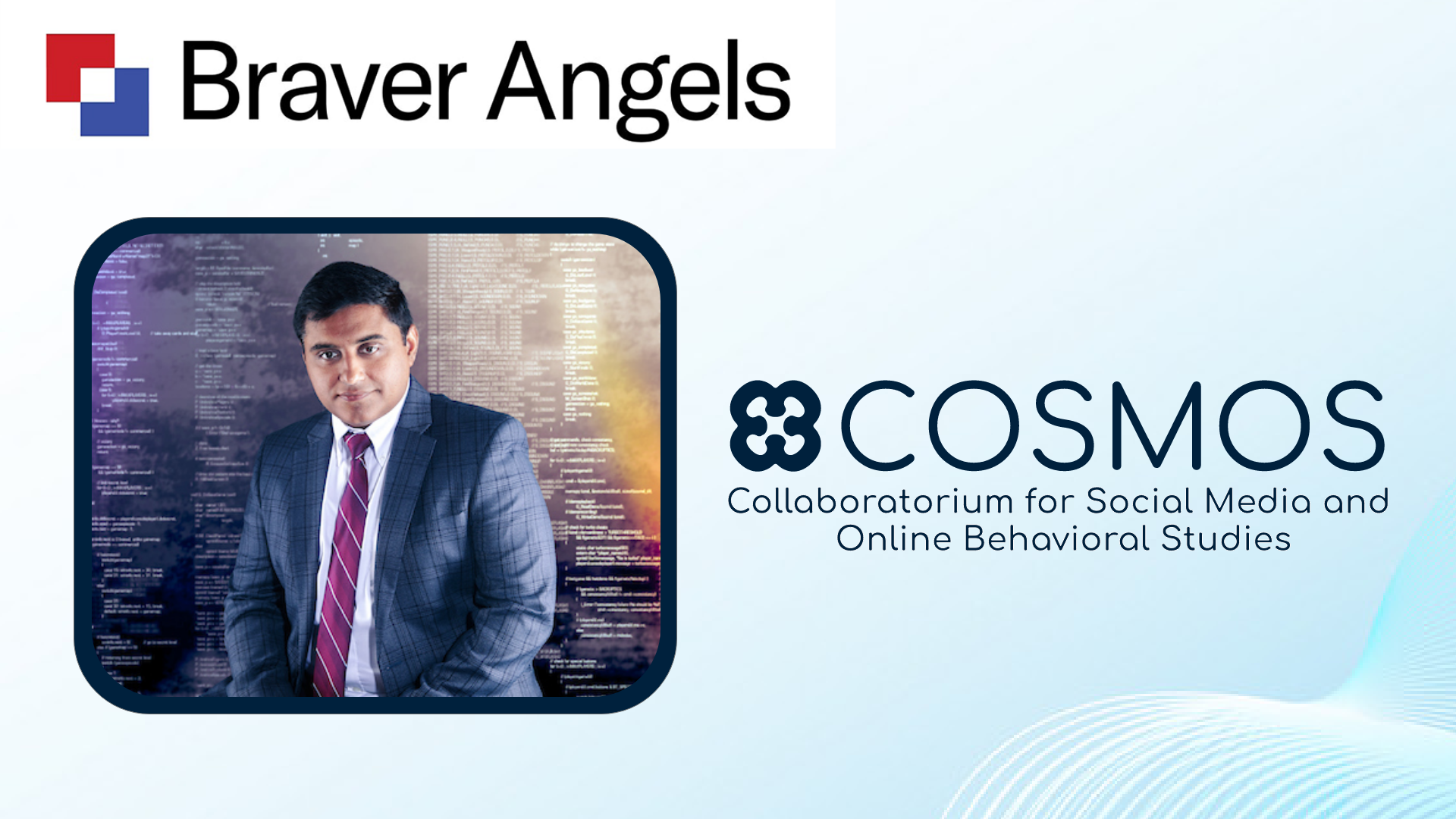Dr. Nitin Agarwal, a distinguished professor at the University of Arkansas Little Rock, recently discussed his research on online influence operations, misinformation, and disinformation campaigns originating outside the US, with the “Braver Angels” podcast. In the podcast episode (split into Part 1 and Part 2), he discussed his extensive research on social media and online information behavior. There, he explained how tactics like the use of bots and artificial intelligence are employed to spread false narratives and manipulate public opinion. Dr. Agarwal emphasized the need for research, education, and collaboration between government and social media companies to address the negative impacts of such online activities, including polarization and violence in society. He also mentioned his collaboration with the Arkansas Attorney General’s office in combating COVID-19 misinformation and highlighted the importance of transparency and equality on social media platforms.

He also took the chance to describe for listeners his personal background, delving into the evolution of his career and tracing it from his roots in India to his studies in computer science at Arizona State University. Dr. Agarwal’s career has focused on understanding online behaviors, both positive and negative, and how they impact society and politics, and that career has led to his pioneering the field of social computing, analyzing how individuals and groups interact in the digital realm.
His research primarily centers on influence, misinformation, disinformation, propaganda, hate speech, polarization, coordinated campaigns, deviant mobs, and collective action, and their potential to impact the United States and its strategic interests. He highlights the importance of studying these behaviors at a large scale due to the massive amount of data being generated on social media platforms. Dr. Agarwal discussed his collaboration with various government agencies, including the US Army Research Office, US Office of Naval Research, US Air Force Research Lab, DARPA, and others, emphasizing their support in advancing research and developing tools to combat online threats.
Dr. Agarwal finished the podcast by elaborating on the tactics used in influence campaigns, prominent on multimedia-rich social platforms, such as the use of artificial intelligence (AI) to create and spread misinformation. He mentions the rise of deep fakes and shallow fakes, as well as the deployment of AI-driven bots to amplify false narratives and toxicity on social media. These tactics deceive algorithms into promoting such content, ultimately affecting public opinion, polarization, and potentially inciting violence. The podcast touches on the need for research, education, awareness, and collaboration between government and social media platforms to address these issues and maintain a healthy democratic society.
Braver Angels is a New York nonprofit that seeks to bridge the USA partisan gap. Braver Angels takes on these challenges by connecting to students and teachers nationwide through various programs and media. Braver Angels Arkansas is one such chapter, and their other podcasts and materials can be found at https://arkansas.braverangels.org/.
